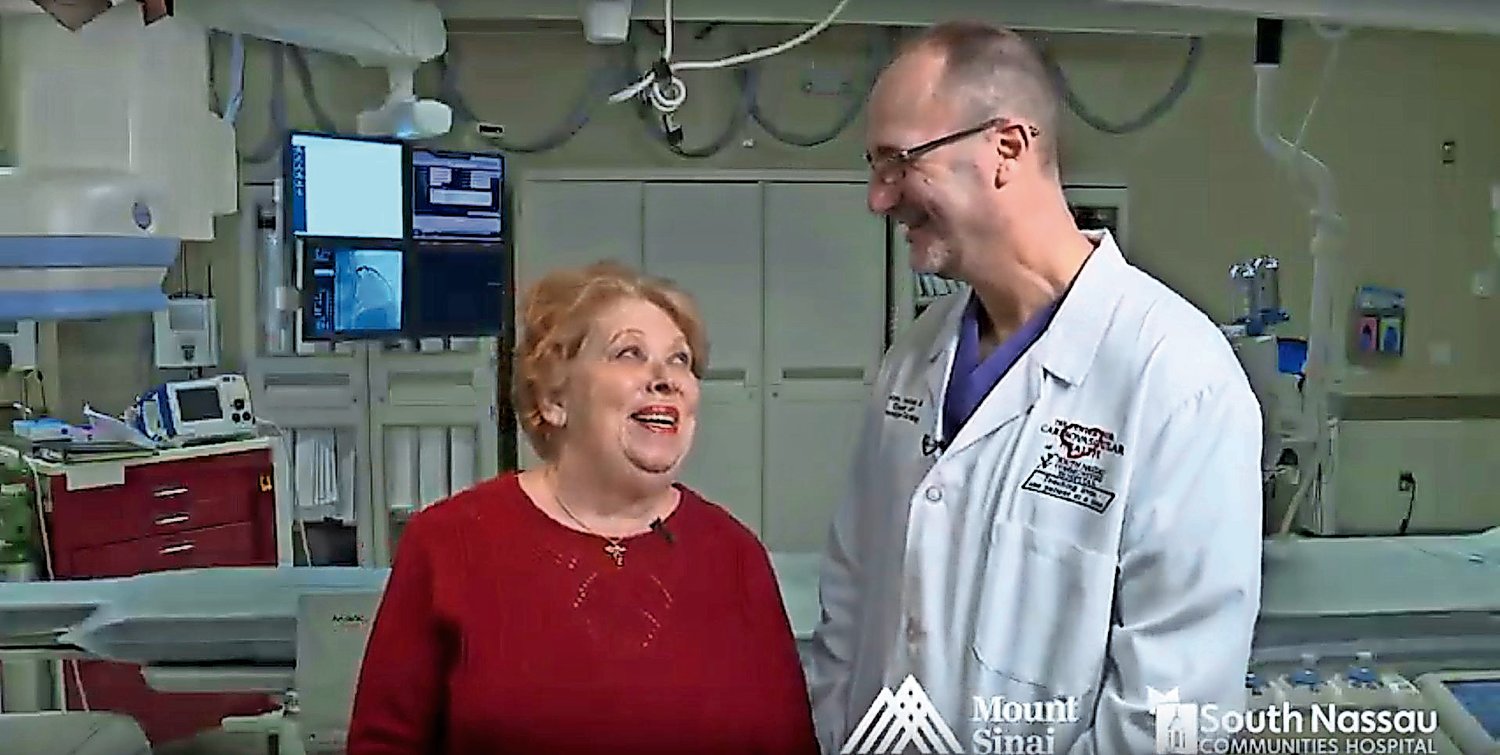South Nassau Communities Hospital spreads heart health awareness
Heart disease is the leading cause of death in American women, killing more females than all forms of cancer combined, according to the American Heart Association.
Women present signs of a heart disease differently than men do, however, according to Dr. Jason Freeman, director of interventional cardiology at South Nassau Communities Hospital.
Between abnormal symptoms and pervasive misconceptions that heart disease only affects men, heart problems in women can sometimes go undetected. In 2004, the American Heart Association launched the Go Red for Women campaign to bring awareness to the issue.
“Years ago, people didn’t think women got coronary disease,” Freeman said. “It was thought that it only pertained to male patients. With a big push from the American Heart Association for learning about heart disease in women, we’ve learned that the way women show signs is different.”
Nearly 80 percent of cardiac events can be prevented, according to the Go Red for Women website. American Heart Association lists possible symptoms of a heart attack as uncomfortable squeezing or pressure in the center of the chest, pain or discomfort in one or both arms, the back, neck, jaw or stomach, shortness of breath and nausea, noting that “women are somewhat more likely than men to experience some of the other common symptoms, particularly shortness of breath, nausea/vomiting and back or jaw pain.”
In honor of American Heart Month in February, South Nassau set up a display in the lobby with information on women’s heart health for its patients. The Oceanside-based hospital, which prides itself on its community outreach, also holds educational programming year-round about this and other health topics.
To prevent heart disease, Freeman stressed the importance of following up with a physician for proper treatment. Recently, one of his patients, long-time Oceanside resident Maria Heller, did just that.
One evening, Heller, 78, experienced belching and chest pain after eating a bowl of soup. She thought it was indigestion at first, but when it became frequent, she decided to go to the emergency room at South Nassau. Her blood work came back normal, showing she did not have a heart attack.
“Even though she had atypical symptoms, when it didn’t go away, she called her daughter to take her to the emergency room,” Freeman said. “She absolutely did the right thing.”
The hospital sent her to a local cardiologist, who ran tests and found possible blockage in her arteries. That’s when Heller went to Freeman, who discovered a 90 percent blockage in one artery and unclogged it through a coronary stent procedure.
“Heller presented with atypical symptoms of coronary disease,” Freeman explained. “She presented to the emergency room with symptoms that were indistinguishable from benign indigestion. The lesson we can learn from her case is that even in the presence of atypical symptoms, it is very important that patients follow up with their physicians so they can get the appropriate work done in order to diagnose correctly the instances of coronary artery disease.”
Heller continues cardiac rehab and regular checkups to make sure her heart remains healthy.
“It wasn’t until I went through a series of tests that they found those problems,” Heller said. “I would have never known if they weren’t that thorough. It’s hard to believe, but people shouldn’t shy away from a baseline [exam]. I’m very grateful and thankful for all the care I received at South Nassau and I’m feeling very well now.”
For more information on heart health, visit southnassau.org.






